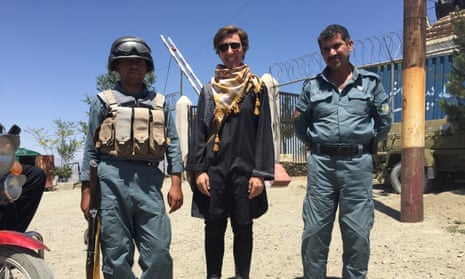I had a dream job, presenting classical music radio [for ABC Classic FM]. Easy. Don’t be late for work, sit in a studio, chat, press the right buttons, go to concerts, chat some more. And that’s what I did for nearly a decade. The job of a radio presenter, at least the way I see it, is to be calm, kind, entertaining. A friend to all. Being light and easy is fine if you feel like that, but if you don’t feel light and easy, what then?
My life might have seemed shiny and smiley from the outside, but inside my mind was being colonised by depression. It began so subtly. A slight feeling of being off with the world. Tiny frustrations at injustices. Then I slipped to a new level and the smallest annoyance became too much to deal with. I began to lose my concept of joy. Everything seemed to have a smear of putrescence, nothing was healthy, nothing was whole, nothing was simple and happy. I didn’t need the Taliban ban on laughing outside. I didn’t laugh anywhere.
Depression is leaden and wily; it seeps into every atom and it stops you sleeping, it makes you fat (or thin), it compromises your immune system, it ages every cell, it takes away your self-love, it takes away your sense of humour, it makes you hopeless. I think for me this last was the hardest. All my life, throughout a tough childhood of bullying and a violent home life, I had kept some hope that things would improve. Now, when my life seemed ideal and with no need to be improved, I couldn’t see any good, anywhere. I couldn’t see any happiness or success.
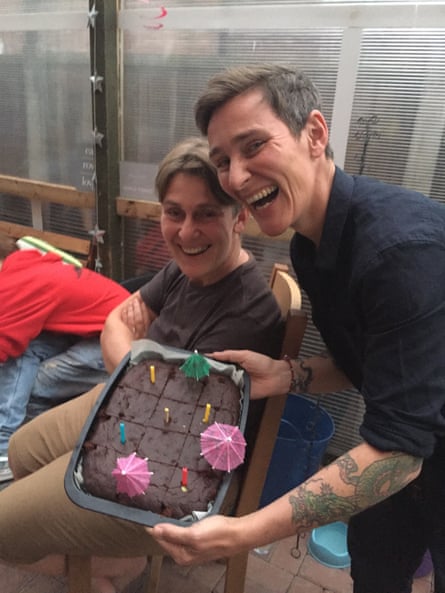
Depression seems to make you blind, but I also believe it gives you great insight. During this time, as I finally gave up on my ability to work and took sick leave, I started to go to a therapist. Adrienne was perfect. She said it was OK to be depressed. Away from my home life, where I felt guilty about being this way, I could go to Adrienne and speak freely. I could sink back into my depression and try to make friends with it, try to work out what it wanted. We talked about taking antidepressants (I didn’t) and how it was OK to use the depression as a way to deeper self-knowledge. But if there came a time when I simply couldn’t do anything, Adrienne would recommend taking the antidepressants.
I felt safe, somehow, in this blanket of melancholy. I knew my melancholy. I was friends with it finally, which was good as it isolated me from others. Who wants to hang out with a depressed person? I floated outside the world, detached. Eventually it was just melancholy and me, hanging out at home, drinking for two. I listened to ancient choral music. I occasionally rode my bicycle. That was it. I had reached a dead end.
I resigned from the radio. I took sick leave for a month and the ABC managers wrote to me, saying they didn’t want me back on air, so that was that. I applied for a job teaching in Scotland and didn’t get it. I turned around and around in my life, not seeing any way out, any way in. I felt physically in pain with the claustrophobia of my own brain.
And then, on the news I saw a bomb had gone off during the performance of a play at the French Cultural Centre in Kabul. The man who had refounded the music school in Kabul, Dr Sarmast, had been badly injured and at least five people were killed. Sarmast only survived because he had bent down to pick up his phone at the exact moment the bomb had gone off. It was a suicide bomber, a 16-year-old, at a play about suicide bombers. Did the Taliban see the irony? I wrote to Sarmast and said I wanted to apply for the position of cello teacher at the Afghanistan National Institute of Music.
At last I had something to aim for. I practised and practised the cello and sent off my audition tape. I did interviews over Skype, with the foreign staff now dispersed around the world after being temporarily evacuated. I clung to the meagre hope that I might get this job. Moving to a war zone was better than living with what was in my head.
I had to wait. There is a total purity in sitting in a room, on your own, knowing that nobody would miss you for several days, if not weeks, if you died. Over Christmas that year I sank down, crashed through, into new levels of despair. I began to think up ways to top myself. A motorbike crash. Walking into the sea. Pills. Pills and alcohol. And perhaps the grimmest of all, locking myself in a room and simply not drinking water.
I write this now and see how sick I really was. My friends distilled into the special few. Friends of an older age, who whenever I saw them hugged me and held me in their wisdom for a few hours. And Richard. Sage, calm, in his 70s and still swimming every day in the ocean. I would go over to his house every week and he would lean at the stove carefully making coffee; we would meander through conversations, me never fully admitting how ill I was, he never openly acknowledging that he really knew. These friends were my safety. If they hadn’t been there … well, they were.
_
In my sessions with Adrienne, the therapist, we had talked about my childhood and my relationship with my mother. For so many years I had not truly seen what my mother had done for her children, but Adrienne allowed me to love her again. We also talked about moving on from radio and the importance of making music in my life. I had been so involved in being a radio presenter I had forgotten my roots; I needed to play the cello and the viola again. And finally, after several months, we came to the subject of my own gender identity.
From the age of maybe five, I had always been confounded by having a girl’s body. I managed to avoid it influencing me much up to around 10, when tiny breasts began to bud on my chest and Tim, my big brother, told me to put my T-shirt back on. From that instant I was locked into femaleness. At 11 I went to an all-girls school. I started my periods and grew hips and a contempt for myself that went so deep, in the end I forgot it was there.
Magical events would happen when people called me a boy. Sometimes this would be embarrassing, for instance when I was about to take off my clothes in a female changing room, but still I would thrill at these little exchanges. I kept my hair short, grew muscles to throw the discus, developed a deep voice and began a very, very long journey of androgyny.
At 14 I realised I was gay. I was at an athletics meeting, waiting for the discus event, and I caught myself staring at a girl hurdler and imagining kissing her. ‘Oh fuck. I’m fucking gay.’ I look forward to the day when young people will say to themselves, ‘Oh great – I’m gay! Woohoo! I can’t wait to tell my mum!’ Not in England in the early 80s. I managed to hide it for a while but other girls at school began to sense something was different and kept their distance. I had my first kiss at 16. With a girl. Gentle lips. Perfume. Slight fingers on my cheek.
I went to music college at 17 and felt somehow obliged to try sex with a man. Kissing a woman had been infinitely complex and tantalising. This was harsh, direct, unsubtle. I confirmed for myself that I was a lesbian and confessed to my mum. She ran from the room and didn’t talk to me for a day. The grim disappointment in her eyes slowly dissipated as I graduated from college, won a big scholarship and went to West Berlin to study. I then embarked on a serially monogamous love life. Seven years was consistently the time limit, straight from one deeply loved woman to the next. There was always a point where I couldn’t give any more of myself. And then I left. If I’d met myself in a bar, I would have felt sorry for me.
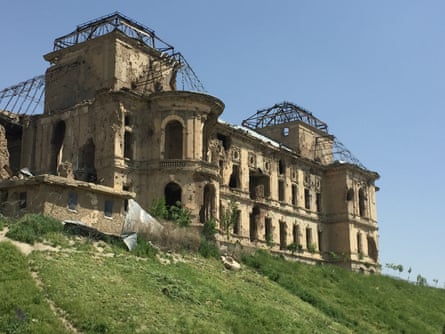
From college to my job in the Hong Kong Philharmonic Orchestra, that was how my 20s spun by. I drank and partied and ate and travelled myself away from any deeper self-knowledge, until I understood what needed to be done to escape the cycle of semi-pleasure/semi-misery.
I decided I needed to get out and about. In fact, to cycle from the UK to Hong Kong. It was on that trip that I had a profound realisation, one that would take 15 years to actually do anything about.
I sat in a five-star hotel room in Multan, Pakistan, finally cool after constant50C days of cycling. I ordered a burger and Coke, and checked what was on the TV. A film, something called Boys Don’t Cry. Hilary Swank. Sure, seemed good enough for an afternoon away from Pakistan. I pressed play, and soon my life would switch from semi-pleasure/semi-misery to just plain misery.
Boys Don’t Cry tells the story of Brandon Teena, a transgender female-to-male who was raped and murdered by two men in 1993. Brandon had grown up in a trailer park and had tried to join the US army and failed, because he refused to put down female as his gender. In his short life he never had treatment for gender reassignment but he presented completely as a man, as the man he knew he was.
I watched this film and I was totally sideswiped. I was so sure of my homosexuality because I had never seen or imagined anything different. Unless a human is extraordinarily individualistic, we tend to mould ourselves roughly around what we see in others. When I was growing up, a woman realising she was really a man simply didn’t exist within my view. Very occasionally I saw males transitioning to females, but they were nearly always the target of spite and ridicule. And there was never any subtlety of differentiation between transgender people, transvestites, homosexuals and drag queens. Quentin Crisp seemed to be enough to depict all the above. Since society, culture and the media in England were so conservative, I never had the opportunity to see beyond being a lesbian.
As far as I knew, there was nothing beyond that. I could go down the butch lesbian path so that’s what I did, from when I was 14. To now be presented with this story and this possibility tore me apart. Because I knew it was me. I fell around in a mist for the next few days. I had to tell someone, but I was alone. In Pakistan. I reached Lahore and decided I would write everything down in a letter to my sister, Liz. She wrote back (poste restante) and said simply that anything I needed to do, she would support me.
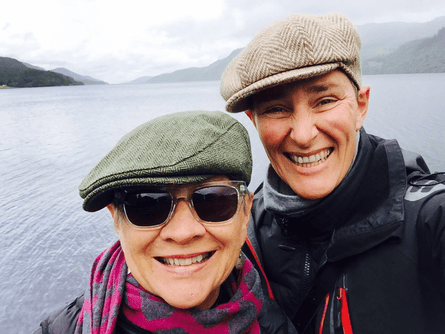
When I realised I was transgender, it was a life-destroying moment: I knew from then on that I would never be happy until I did something about it. But to do something about it meant possibly losing everything. It turned out that I lost everything because I didn’t do anything about it.
How do people have the bravery to go to a doctor, describe these feelings, have very confronting but beautifully liberating surgery, and take hormones that will completely change their sense of self? Even if everything goes well and works out, still, how does one even begin to do this?
I didn’t know, then. I put this knowledge away, very, very tidily, for 15 years. It sat next to my self-contempt, slowly merging together to build a great depression. Over the next few years transgender urges would erupt out of me, and I would spend days looking at trans sites on the internet. Then I would shove everything down again and tell myself it was not necessary to do this thing, that being a butch woman was fine and my girlfriend loves me now but she had told me very clearly she would leave me if I transitioned, and besides, who would employ you and what would Mum think and everybody will see you as a freak and … no. It just wasn’t going to happen. I would stay a woman.
_
There was no work I needed to do while I waited to hear about the Kabul job, so I decided to do what I do best – travel. I looked at my bank balance and a map. What did I need from this travel? I needed physical activity. I needed beauty. I needed somewhere new. I needed time to meditate and I needed quiet. Nepal. I had been looking for a long time at a place called Muktinath, at the top of the Annapurna circuit. Muktinath is a temple holy to both Hindus and Buddhists. It would be bloody freezing at this time of year but it was still possible to get there. I could go and see the temple where dakinis, or sky dancers, were said to inhabit the atmosphere. I could walk alongside my new mate the black dog and try to integrate this depression into myself. If I didn’t get the job in Kabul, I decided, I would kill myself. That was my plan.
As I walked in Nepal, the devastation of my life became unavoidable. I experienced the honesty of having no idea what would happen to me, all the while waiting to hear if I had got the job. I climbed beyond the tree line, wrenched my body into submission, lost 10 kilos and practised Vipassana meditation for two hours every day. As the air thinned, my acceptance of my wrecked life thickened.
And finally, at the temple in Muktinath, I was blessed by the Hindu priest there and received a state of grace. It was all OK. My relationship had split up, my career, my home, everything had gone. But finally, in a moment, I saw that this was as it needed to be. Something floated away from me in that moment. Horror, profound sadness, a corrupted sense of myself. Rumi tells us in one of his poems to travel inside ourselves if we cannot travel outside. The passages inside are ever-changing, like shafts of light. The light in my head changed from a monotone of dullness to a dappled, kind light.
_
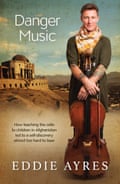
On the very day I visited the temple in Muktinath, I finally heard that I had got the job in Kabul. This news saved my life. I walked back down the mountain, came back to Australia and slowly felt my depression melt into me. I had faced it, and we had learnt to live with each other. I also realised it would never go away, and I know now that that is a good thing, because it allows me to see things for what they really are.
What had not killed me had made me stronger. I was going to live in a semi-war zone, and finally I felt at peace.
This is an edited extract from Danger Music by Eddie Ayres, published by Allen & Unwin, $32.99
